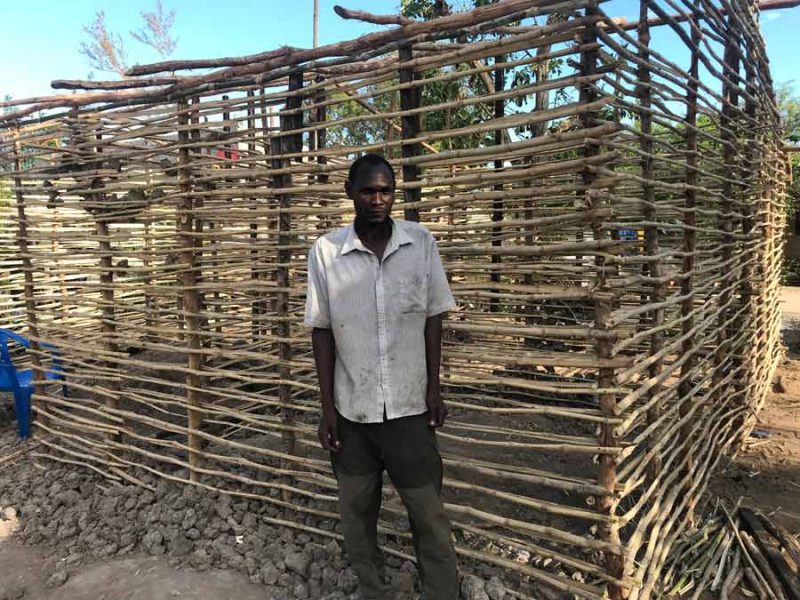In the wake of natural disasters, the question often arises: how can communities effectively mobilize to restore normalcy and foster resilience? This inquiry is particularly poignant in light of the recent cyclone that ravaged parts of Mozambique, underscoring both the vulnerabilities that certain regions face and the remarkable potential for grassroots humanitarian action. This phenomenon allows us to explore Bahá’í teachings and their relevance in mobilizing communities in times of crisis.
Central to the Bahá’í Faith is the principle of unity—an ideal that encourages collaboration and mutual support among individuals and communities, regardless of differences. In Mozambique, where the cyclone inflicted considerable destruction, this principle manifested through local initiatives aimed at recovery. As the winds subsided and the floodwaters receded, the imperative for collective action became starkly apparent. The community had to confront the challenge: would they allow despair to prevail, or would they harness the power of unity to catalyze change?
The initial response to the cyclone showcased the inherent resilience of the people, reflecting the Bahá’í commitment to fostering unity in diversity. Individuals from various backgrounds came together, putting aside their differences, urging one another to contribute in meaningful ways. This collective effort is a testament to the Bahá’í belief that human beings, when unified, possess an unparalleled capacity to effectuate profound change.
To further illustrate this point, consider the multifaceted approach employed by the community in Mozambique post-cyclone. First and foremost, the mobilization of local resources was paramount. Volunteers organized food drives and hygiene supply distributions, aiming to alleviate immediate suffering. This grassroots response underscores an essential Bahá’í teaching: the significance of service to humanity. In instances of urgency, the spirit of altruism takes precedence, prompting community members to lend assistance without expectation of reward.
Furthermore, educational outreach emerged as a pivotal aspect of the recovery process. The community’s approach recognized that future resilience hinges upon awareness and preparedness. Workshops were organized, instructing citizens on disaster readiness and response techniques, effectively transforming a tragic event into a learning opportunity. This initiative not only empowered individuals with knowledge but also reinforced the Bahá’í principle that education is a cornerstone for societal progress. The act of learning, particularly in challenging times, can engender a profound sense of hope and possibility.
However, the endeavor was not without its challenges. One of the most significant obstacles faced was the potential fragmentation among community members. While the cyclone had fostered a sense of urgency, it also exposed pre-existing tensions and disparities. Would the community’s unity endure amidst adversity, or would it dissolve into discord? The Bahá’í perspective emphasizes consultation as a means to navigate such challenges. By fostering open dialogues, community leaders were able to address concerns, ensuring that each voice was heard, thereby fortifying the bonds of unity. This became pivotal in countering divisive tendencies that could undermine recovery efforts.
As recovery progressed, a crucial question emerged: How do we sustain the momentum generated by this mobilization? Bahá’í teachings advocate for a continuous cycle of learning and action, encouraging communities to reflect on their experiences and adapt accordingly. In this context, community leaders initiated follow-up evaluations to assess the efficacy of their interventions. Such reflective practice is emblematic of a learning organization, one that views every setback as an opportunity for growth. In doing so, they cultivated a culture of resilience, empowering individuals to remain proactive in the face of future challenges.
Moreover, the role of local leadership proved instrumental. In accordance with Bahá’í principles, leaders emerged not from formal titles but from their capacity to inspire and mobilize. As individuals naturally gravitated towards those demonstrating empathy, courage, and determination, this organic leadership highlighted another Bahá’í tenet: the importance of moral leadership in fostering an environment conducive to positive change. The community’s ability to rally around such figures enabled a greater collective effort in the aftermath of the cyclone.
Additionally, it is essential to acknowledge the role of external support. The Bahá’í community, globally committed to humanitarian endeavors, facilitated the provision of resources, expertise, and solidarity. This solidarity, both local and international, illustrates the interconnectedness of humanity, a core belief within the Bahá’í teachings. It underscores the notion that no one should face adversity in isolation. The collaborative efforts enriched the community’s resource pool, validating the interconnected principle of service transcending geographic limitations.
As Mozambique continues its journey toward recovery, the resilience manifested in the aftermath of the cyclone serves as a model for other communities facing their own trials. Essential to this process are the foundational teachings of the Bahá’í Faith, which emphasize unity, consultation, education, and moral leadership. The challenge prompted by the cyclone can transform into an opportunity for growth, underscoring the imperative to foster cooperation and solidarity in times of crisis. Ultimately, in the spirit of Bahá’í teachings, it is through our collective response that we can rebuild not only our communities but also the very fabric of our shared human dignity.
In conclusion, as the world grapples with various challenges, the events in Mozambique remind us of the potential inherent within communal solidarity. Will we, as global citizens, choose to emulate this spirit of cooperation when faced with our own adversities? The answer lies within our capacity to listen, learn, and act together, propelled by the timeless teachings that encourage us to see beyond our differences and work towards a shared future.
